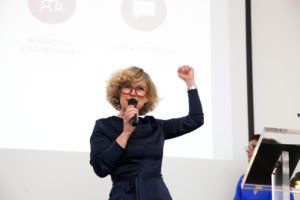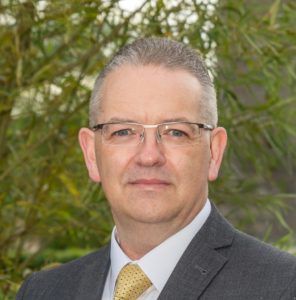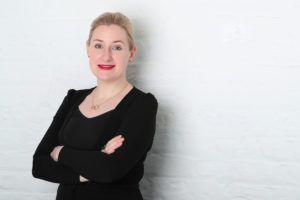Covid-19 and the future of work
One year on from the announcement of Ireland’s first major Covid-19 restrictions, we asked some clients and contacts for their thoughts on how the pandemic has impacted the world of work and how the events of the past 12 months are likely to affect workplaces in the longer term.
Exactly one year ago today, the then Taoiseach, Leo Varadkar TD, announced the first raft of Covid-19 restrictions. These included the closure of schools and childcare facilities; cancellation of indoor gatherings of more than 100 people and outdoor gatherings of more than 500; and a request that those who could work from home should do so.
The measures were due to last until 29th March 2020 but, on 27th March, Ireland entered full lockdown for the first time. One year on, we’re back in lockdown and the world as we knew it seems permanently changed.
TV scenes of carefree crowds make us squirm; we haven’t hugged anyone outside our immediate household for months; and – for many of us – working from home is now the norm.
At Alice PR, we’ve been lucky: we did lots of remote and flexible working well before Covid-19; and our sector, thankfully, hasn’t been badly impacted by the pandemic. We’ve kept busy and we were able to adapt quickly to offering our services online.
As the months have dragged on, however, we’ve been speculating as to how much of our current routine will persist once Covid-19 ends. Will we all rush back to the office? Will we continue to run online events? Will in-person meetings become a thing of the past?
We’ve already made the decision to downsize our main Dublin office, and move from the city centre to a new location in Rathmines. When we can return to the office, we’ve decided to do so on a hybrid basis (permanently), with team-members working part of each week in the office and part of each week from home.
To mark the one-year anniversary of Ireland’s first raft of Covid-19 restrictions, we asked some of our clients and wider contacts for their insights on how other workplaces will permanently adjust in the aftermath of Covid-19. Here’s what they had to say…
Sonya Lennon
"I believe we have an obligation to treat our home as SMEs: we wouldn’t expect one person to do everything in a business scenario, so we shouldn’t expect that at home. How should we delegate? How can we function efficiently? That’s the way we need to think about work in the home."
Sonya is a designer, businesswoman, social entrepreneur and sought-after speaker. She’s the founder of Dress for Success Dublin, our longest-standing client, and the WorkEqual campaign, a cause very close to our hearts.  What’s one work change that emerged during the pandemic that you hope will last?
“One of the things about Covid is that it’s the ultimate magnifier. If you were in a precarious situation at work prior to the pandemic, it has likely made that worse. And if you were in a good situation, it has possibly opened up new opportunities for you.
What’s one work change that emerged during the pandemic that you hope will last?
“One of the things about Covid is that it’s the ultimate magnifier. If you were in a precarious situation at work prior to the pandemic, it has likely made that worse. And if you were in a good situation, it has possibly opened up new opportunities for you.
“In my own home, we were already very aware as a family about the equal distribution of work. But the four of us spending Lockdown in our house together – all day, every day – was illuminating. It gave us more awareness of what makes our home tick. In Lockdown, men and women got to see how the days are spent within the four walls of their home. And their learnings from that will last.”
What’s one work change that emerged during the pandemic that you can’t wait to see the back of? “The downside, of course, is where women took on the full burden of extra work at home – home-schooling, increased housework, caring duties…
“I believe we have an obligation to treat our home as SMEs: we wouldn’t expect one person to do everything in a business scenario, so we shouldn’t expect that at home. How should we delegate? How can we function efficiently? That’s the way we need to think about work in the home.
“We also need to stand back and understand the messages that we – as women – are embedding into the next generation.”
Do you think the pandemic will have a long-term impact on how we work? “I hope so. It has made us re-evaluate what’s important. What we’ve been missing most is being able to eat and laugh with our family and friends. And if that’s what we’ve been missing, that’s what’s really important. I hope we hold on to that.”
William Lavelle, Drinks Ireland|Irish Whiskey
William Lavelle is Head of Drinks Ireland|Irish Whiskey, the representative association of the Irish whiskey industry and one of Ibec’s trade associations. He is also Vice-Chair of the International Trade Committee of Spirits Europe, the representative organisation for the European spirits sector. Previously, he worked in politics, including serving as an elected representative on South Dublin County Council. Alice PR has worked with Drinks Ireland|Irish Whiskey since the start of last year.
One work change that emerged during the pandemic that you hope will last: “Before all this, I would have been the type to say ‘change comes slowly’ and ‘reform is incremental’. But the scale of change engendered by this pandemic has been unprecedented.
“Decades, if not centuries, of norms and assumptions surrounding work and the workplace have been torn-up and shredded. It’s most definitely a brave new world when it comes to work; and I really hope the future of work is one that respects and fosters flexibility and work-life balance.
“We’ve finally come to realise that it is output that counts, not the count of the hours worked. I hope it stays that way.”
One work change that emerged during the pandemic that you can’t wait to see the back of: “For me, I can’t wait to get out and about and travel again with work. While I miss international travel to an extent, what I’ve missed most is travelling to meet member companies around Ireland (even just in Dublin) and to see at first-hand how Irish whiskey distilleries are doing.”
Do you think the pandemic will have a long-term impact on how we work? “Before Covid-19, all my meetings were in-person – with limited conference calling and even less video calls. Now, it’s 100% Zoom and Teams. But going forward, post-Covid, I firmly believe hybrid will be the new norm, particularly for larger meetings. Some participants will be around the table; some will be online. We know it will work and, most importantly, it will put people first, respecting participants’ choices of how they want to work and fostering a more flexible approach to work.”
Della O’Donoghue, M.CO
"If we can seize the moment, we have an opportunity to work in a much more sustainable way that changes the dynamics of families, communities and ultimately our society."
 Della O’Donoghue is the Managing Director of M.CO, an award-winning strategic project management and design company, working across diverse sectors including health, climate action, culture and place-making.
Della O’Donoghue is the Managing Director of M.CO, an award-winning strategic project management and design company, working across diverse sectors including health, climate action, culture and place-making.
At Alice, we partner with M.CO on different client projects. At the moment, for example, we’re jointly working on Cycle Kilkenny, an initiative to create a more pleasant cycling experience in Kilkenny.
One work change that emerged during the pandemic that you hope will last: “Greater flexibility in terms of how people work and where they work from. For many of our clients and our own team at M.CO, not having to commute and being free to work from where they want, within Covid restrictions, has offered an opportunity to organise their work in a way that better suits the reality of life’s ever-changing circumstances and commitments.”
One work change that you can’t wait to see the back of:
“Days of back-to-back virtual meetings!
“It’s amazing what we have learnt to do virtually and there is no doubt that virtual engagement can increase accessibility and open up discussions to groups of people who might otherwise not have had their say. But, at M.CO, we miss the in-person human contact and the energy and spark of the connections that come through unexpected connections around formal meetings. And the fun and laughter. Who knew we’d all miss the tea and scones part of workshops so much?!”
Do you think the pandemic will have a long-term impact on how we work? “Yes. I think the pandemic has accelerated many pre-existing trends. More fundamentally, it has shown us how much of life’s joy is made up of day-to-day interactions and activities and I think this will change our working lives dramatically – from where we work, to how often we go to a central office, to how we travel there.
“It has also, very positively, finally put an end to the idea that you have to be at a desk in an office in the middle of a city to be productive.
“If we can seize the moment, we have an opportunity to work in a much more sustainable way that changes the dynamics of families, communities and ultimately our society.”
Justin Mulhern, LEO South Dublin
 Justin Mulhern is the Senior Enterprise Development Officer at Local Enterprise Office South Dublin. Leading a team of 10 business advisors and support staff, he has overseen the LEO’s shift to online support for SMEs and entrepreneurs in the area – including an extensive programme of training and events.
Justin Mulhern is the Senior Enterprise Development Officer at Local Enterprise Office South Dublin. Leading a team of 10 business advisors and support staff, he has overseen the LEO’s shift to online support for SMEs and entrepreneurs in the area – including an extensive programme of training and events.
One work change that emerged during the pandemic that you hope will last:
“A clarity about the challenge of managing a work / life balance: the pandemic has made us appreciate the need for flexibility. Not all work needs to be managed within the old ‘9 to 5’. A lot of activity can be achieved by the flexibility around working hours.”
One work change that you can’t wait to see the back of: “Online-only meetings – I can’t wait to see the back of some of them. There is an incalculable amount of tacit knowledge that gets shared through the more casual interaction that is had around the office. This exchange is harder to replicate in a forced online setting. We lose the human element that can make work more enjoyable.”
Do you think the pandemic will have a long-term impact on how we work? “Yes, for sure. As with any seismic event in history, the adoption of technology takes a leap forward (sometimes that technology is bad and sometimes it’s good).
“We’ve had the ability to have a more blended working practice for a long time but, until the pandemic hit, businesses were reluctant to give their staff this choice. The adoption of remote working has been forced on businesses and it’s not the scary prospect they may have feared.
“Will we move back to office working? I think we will to some level, but not back to the level we used to. There is a balance that will prevail when we do have the choice about movement.”
Sonya Browne, Hybrid TP
Sonya Browne is the Finance Project Manager at Hybrid Technology Partners, a provider of expert IT support and bespoke software solutions; and an Alice client. Based in Limerick, Sonya has 20 years’ industry experience in supply chain operations, financial analysis and leading finance projects for large global operations.
Based in Limerick, Sonya has 20 years’ industry experience in supply chain operations, financial analysis and leading finance projects for large global operations.
One work change that emerged during the pandemic that you hope will last: “One positive change that has come about because of Covid is flexibility on working hours,” she says. “People have been able to juggle kids and work by scheduling different hours when they can and I think that’s very beneficial for people to find some kind of balance.”
One work change that emerged during the pandemic that you can’t wait to see the back of: “For us as a team at Hybrid TP, having everyone remote all the time is something I won’t miss.
"It’s awful not having your team with you to bounce ideas off and communication is just that little bit less than it would be if everyone was in the office.”
Do you think the pandemic will have a long-term impact on how we work? “I think the pandemic will have a long-term impact on how we work. It proves that we can work remotely and that we should be able to work from anywhere and, therefore, nothing ever really has to stop or be held up by anything at any time.”
Senator Emer Currie
"I’d like to see the Government running a communications campaign around best practice for new ways of working – like remote – and ensuring equal opportunities."
Emer Currie is a Senator since June 2020, having been nominated to Seanad Éireann by the Taoiseach. A long-time champion of remote and flexible working, she is the Fine Gael Seanad Spokesperson on Employment Affairs, Work / Life Balance and Northern Ireland. Based in the Dublin West constituency, she previously served as a member of Fingal County Council from 2019 to 2020. She is Co-Chair of the WorkEqual Oireachtas All-Party Group.
One work change that emerged during the pandemic that you hope will last: “I sincerely hope this will be the beginning of a flexible work culture emerging in Ireland. The proof is in the statistics – countries with flexible work arrangements keep more women in the workplace and have less of a gender employment gap.”
One work change that emerged during the pandemic that you can’t wait to see the back of: “Women taking on the bulk of home-schooling, childcare and domestic duties. 9% of Irish women took leave to juggle everything, compared to 0.4% men; they were more likely to feel stressed and work long hours, combining work and care.
“Even though women are much more likely to be working in frontline roles, they were also more vulnerable to unemployment because of overrepresentation in precarious and casual work. Sharing care is something we have to address going forward.”
Do you think the pandemic will have a long-term impact on how we work? “I really hope so. But it won’t happen by itself. I’d like to see the Government running a communications campaign around best practice for new ways of working – like remote – and ensuring equal opportunities.
“Legislation will be introduced so employees can request remote, but remote doesn’t work for everyone, so we should encourage employers to offer more types of flexibility going forward (core working hours, compressed hours, flexi-time, etc. with boundaries so people know they have the right to disconnect).
“We have an opportunity to change the way we work for good and we should seize it by thinking big and long-term.”
Martina Quinn, Alice PR
We’ll leave the final word to our own MD, Martina. One work change that emerged during the pandemic that you hope will last:
“Online meetings have transformed my working life. Previously, I spent a lot of ‘dead’ time, travelling around the city to meetings at different premises. I feel I have more hours in the day now that I’m attending all my meetings through Zoom.
One work change that emerged during the pandemic that you hope will last:
“Online meetings have transformed my working life. Previously, I spent a lot of ‘dead’ time, travelling around the city to meetings at different premises. I feel I have more hours in the day now that I’m attending all my meetings through Zoom.
“Of course you can’t beat in-person interactions, and I want some of that to come back. But I really, really hope most meetings continue online.”
One work change that emerged during the pandemic that you can’t wait to see the back of: “What I miss most is the social element of work. We’re a close-knit team in Alice, and we like socialising with each other. When we’re in the office, there’s always lots of banter and chatting and fun.
“We’ve had some valued team-members leave in the past year, and others have had milestones and personal achievements to celebrate. But we haven’t been able to mark any of that properly.
“I feel we miss out on a lot of the casual social interactions that take place in the office environment. We’re less likely to engage in chit-chat when we’re just interacting with each other on Zoom.”
Do you think the pandemic will have a long-term impact on how we work? “Yes, I hope so. I think it can make us smarter about how we work. We don’t have to be physically present to ‘attend’ an event or a meeting anymore. That opens up lots of new opportunities: I can go to meetings in Brussels or London or anywhere in the world without having to leave this country. And we can get great international contributors involved in events here, without having the expense of travel, accommodation, etc. This is obviously a much more sustainable way to approach work travel too.
“In the long-term, I hope all employers remember we don’t have to be eyeballing our team-mates to trust they’re doing their job and doing it well. The benefits of flexible working and using digital tools to improve work / life balance have been amply demonstrated over the past year. Let’s hope we remember those lessons in the years to come.”